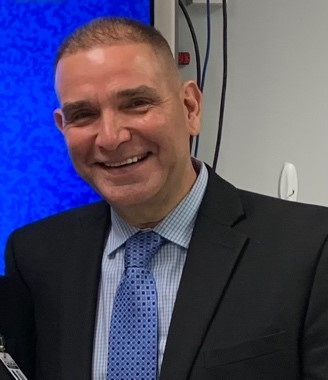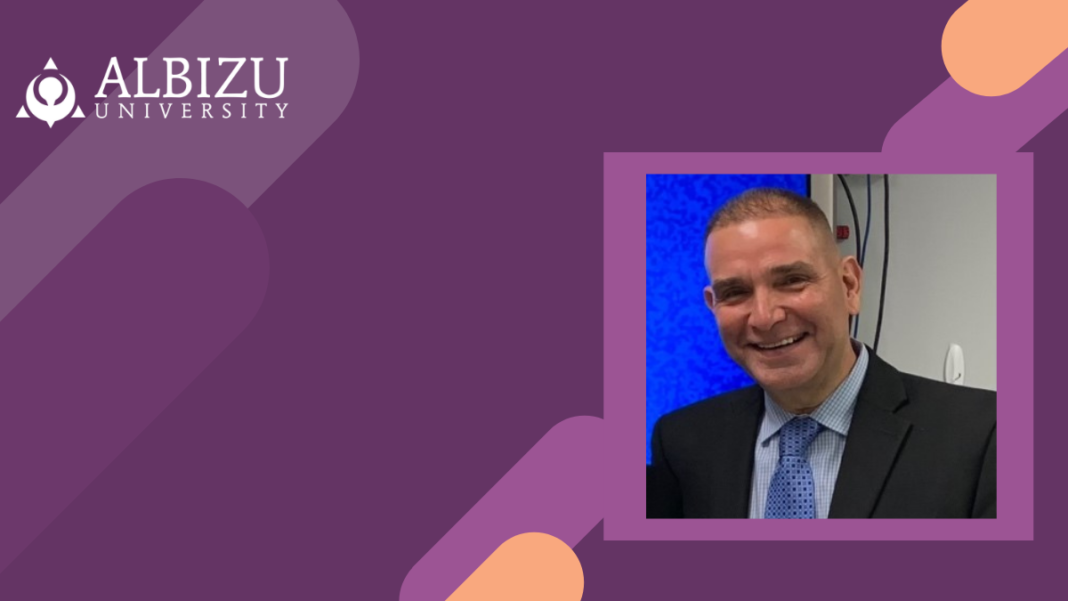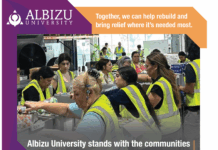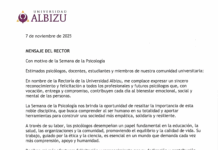Orlando Castro Counsels and Assesses Pro Sports Athletes Worldwide; He Also Helps Young People Right Here At Home in Miami

Licensed Mental Health Therapist and Director of the Adolescent Unit at Larkin Hospital.
Albizu University is changing the world by turning passions into professions! Because we specialize in educating students for vocations in which they can help others, it’s no surprise to know our graduates have gone on to exciting careers in psychology, human services, criminal justice, healthcare administration, speech and language therapy, and elementary education.
But what’s it like in the real world? And how do you get that “big break” where you can earn the opportunity make a difference and fulfill your dreams?
Meet Orlando Castro, an Albizu alumnus who is living his own dreams thanks in part to his Albizu education. With the skills he learned from his Albizu master’s in psychology program, he’s now traveling the world with professional sports teams providing psychological evaluations to prospective athletic recruits and working with team members on mental health counseling. Often, when a star athlete is discovered in another country, he (or she) is lacking the paperwork required to both work in the United States and sign a legally binding contract. In lieu of having any paper documentation, the sports team manager calls Orlando to make an evaluation of the athlete’s mental fitness before presenting the potential recruit with a financially significant contract.
Orlando also provides counseling at a behavioral health hospital right here in Miami for young people in crisis.
We sat down with Orlando to ask him a few questions about his work:
What is your typical day like working with athletes as a mental health counselor for pro sports teams?
Orlando: “I regularly work as part of a team of mental health coaches who addresses players individual needs in a very confidential format, so it depends on where the need may be and what the club manager wants me to do. Many times, a specific player is struggling with performance anxiety due to overthinking, since mental pressure at the pro sports level seems to affect athletes more. For the pro baseball players I work with, our sessions are usually between games or after a game to review their performance and what type of distraction may have been affecting them. Often, I also deal with substance abuse issues or insomnia, which players frequently encounter.
So what’s it like to work as a youth counselor?
Working with young people in the type of setting where I see them usually involves crisis-based juvenile offenders who have been placed there by the authorities. Because of the different situations all teens face these days, it’s much different than working with athletes and requires a different type of modality. Adolescents often face depression, anxiety and different types of socialization skills at school or simply dealing with issues at home.
Unfortunately, most of the teens I deal with have not attended school either during or after the pandemic, so they have lost many social skills. As a result, adapting to returning to school this year has created many issues in their day-to-day lives, particularly in communication and expressing emotions they are feeling.
Does doing both jobs require you to “switch gears” in your own mind? How do you handle that?
For each different role, I need to have a different mindset because I’m dealing with different populations.
For example, when it comes to athletes, they have similar types of issues mostly related to performance.
With juveniles, it’s all about the struggles and triggers created by their regular day-to-day life issues.
I always try to be openminded and attentive when listening to the two different types of people and their situations. To help me mentally prepare, I’ll usually like read their case histories beforehand.
What did you learn in school that you use in your daily work?
My Albizu University education taught me discipline in my approach to work, but also exposed me to many different modalities of therapy and skills that have helped me tremendously in my daily practice. Even more so than academic books, it was my practicum experience that prepared me for work in the real world.
So, depending on the client, I use these skills every day in different circumstances.
Most importantly, I still keep learning every day from my clients.
What is the one thing a student can best do to prepare for life in the professional world of psychology?
First and foremost, to work in psychology or mental health services, you really must enjoy working with people and helping them.
Mentally preparing for the demands of where you want to work is also important. For example, like me, you might get hired by a professional sports team, which entails long hours and being away from home for extended periods of time as you travel with them. It’s very different than working as a counselor in a local office.
You have such a cool job. How did you get there?
I got the job with the sports organization because I was already involved with the team and providing services to some of their players through my private practice. I knew the general manager and was offered the job by being in the right place at the right time.
However, I’d also like to mention that I’ve loved sports and been around athletes all my life since early in my career. I was even blessed to have the opportunity to coach for high school teams.






